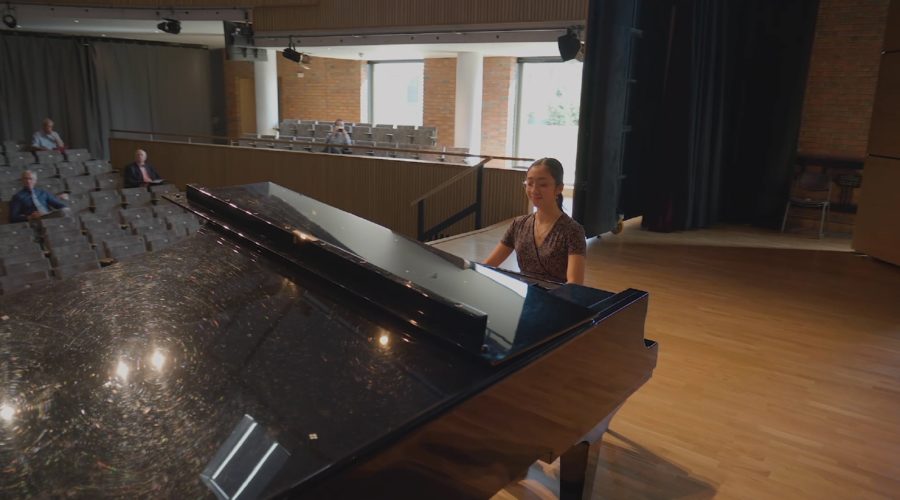News
< back
Monday 14 Dec 2020
What instrument should I play?
We are delighted to share our first blog post from this year’s Young Musicians’ Bursary Award Winner Jessica Yuen. You can watch Jessica’s winning performance here.
Hello – my name is Jess, and following the finals in September, I was lucky enough to be chosen as this year’s Young Musician Bursary Award winner!
A little about myself – I am 16, and have just started sixth form. I previously attended Tunbridge Wells Girls’ Grammar School but have now moved to The Judd School which is in Tonbridge, where I study Chemistry, Biology and Music. If I’m not practising piano, I’ll be doing schoolwork, wider reading for my school subjects, or baking. I’ve found that baking is a very useful hobby for a musician to have; gruelling orchestral or chamber music rehearsals are always made a little more bearable by cake!
The Cambridge Dictionary definition of a musician is “someone who is skilled in playing music, usually as a job”. So the first step of any musician is to choose an instrument to play! I’m not qualified to offer advice on why to choose all the different instruments out there, but I can tell you why the piano is a brilliant option.
The type of sound you can create with a piano is infinite: soft, yearning and meditative or dynamic, explosive and confrontational – and everything in between. One reason that the piano is so attractive to beginner musicians is the fact that without very much effort at all, a beautiful sound can be produced. There is no need to learn about where on the string to put the bow hairs. There is no need to learn proper embouchure. Intonation is not a worry, nor is breath control. It is an instrument that is physically easy to learn, but incomprehensibly difficult to “master”.
Pianists are constantly working against and trying to negotiate with time; as soon as a note is hit, the sound is dying. This is true of every single note produced by the piano, even if the key is held down or the sustain pedal is used. There is nothing we can do to prevent it. It takes an incredible amount of hard work and time to develop the skill to utilise this feature of the instrument to our advantage, and prevent it from being a detriment to the music we produce.
If you’re considering starting an instrument, my advice would be to listen to that instrument. Listen to how it sounds solo, how it sounds in small groups, and how it sounds in larger orchestral ensembles. What instrument do you like the sound of the most?
This is easier said than done, but try not to be afraid. Every successful musician had to start from where you may be now – a complete beginner.

